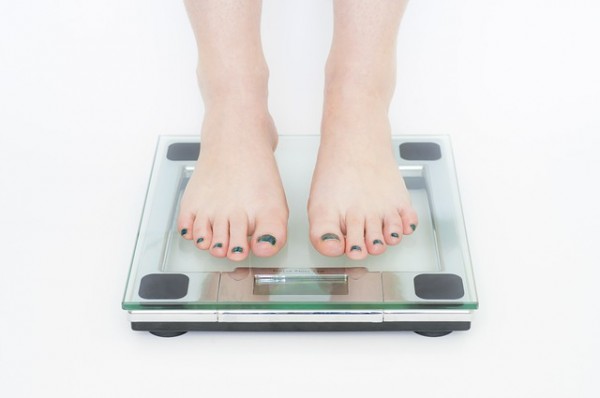
mojzagrebinfo / Pixabay
Guest post by Jenny Babino, RDN, LD, courtesy of the Maine Academy of Nutrition and Dietetics.
With the start of the New Year, many of us will be setting a New Year’s resolution to lose weight. Whether it’s those last 10 stubborn pounds or a bigger goal, there is always the temptation to get it done the “quick and easy” way. After all, who wants to prolong the deprivation? Here we’ll take a look at some of these so-called “easy” methods …
Very Low Calorie/Fad Diets
It seems like every week there is a new diet out there that promises significant weight loss in a short amount of time and provides a set plan of foods to be eaten (sometimes in odd combinations or at certain times of the day).
The grapefruit diet, Scarsdale diet and the cabbage soup diet are examples of low-calorie fad diets that are resurrected from time to time.
So do these diets actually work? They might initially since aggressive caloric reduction will lead to some pounds lost. However, if the pounds come right back soon after “going off” the diet, what’s the point?
Overly restricted diets are difficult to maintain and ultimately unhealthy. The National Institutes of Health report that many fad diets can be unhealthy because they limit overall nutrient intake. Prolonged severe calorie restriction (< 800 calories daily) can also lead to serious heart problems as well.
Bottom line: The Academy of Nutrition and Dietetics advises staying away from short-term diet plans, pills or programs that promise results that seem too good to be true. Most likely it took you a while to gain the weight, so give yourself some time to lose it.
Fasting, Detoxes & Cleanses
Trendy “cleanses,” “detoxes” and intermittent fasting are frequently promoted at the start the New Year because they reinforce that feeling of starting fresh. It’s an appealing concept for sure.
Many of these plans claim to help “rid” the body of toxins that can inhibit weight loss, to “reboot” your system and make the body work more efficiently. This sounds good, but is there any way that one would really know if one’s system has been “rebooted”? Nope.
In fact, the human body is amazingly good at getting rid of toxins all by itself via the kidneys and liver. Prolonged fasting, cleanses and detoxes can lead to electrolyte imbalances, low blood glucose levels, fatigue, and cardiac issues, to name a few issues.
Intermittent fasting may have some health benefits, but additional human research is needed. For optimal health, nutrition professionals encourage everyone to eat a balanced diet that includes a variety of whole grains, fruits, vegetables, low-fat dairy and lean protein sources.
Eliminating Fat or Carbohydrates
Any type of eating plan that encourages you to restrict entire food groups is not recommended. Decreasing your calorie consumption by eliminating ANY food group will naturally lead to weight loss — because of the calorie deficit.
Fat-phobia is not recommended for weight loss. It can make actually make it harder to stay satisfied and control weight. A moderate amount of the right kinds of fat (monounsaturated fats and omega-3 fats) help keep you satisfied and are also linked to better health overall.
Carbohydrates are found in lots of foods — not only breads and sweets. Fruits, vegetables, legumes, nuts/seeds and dairy products also contain carbohydrates.
If, by cutting out carbs, you really mean cutting out sweets, sodas, pastries and refined grains, then that can be a weight-friendly diet move. However, cutting lots of different foods that naturally contain carbs, chances are you’ll be missing out on lots of different nutrients.
A moderate consumption of carbohydrates that emphasizes natural carb sources (not processed carbs) can help satisfy cravings, give energy and also fit into a weight control plan. Overall, both fat and carbohydrates are important nutrients for the body, and both should be included in your meals daily.
Hints for healthy weight loss
- The “equation” for weight loss is that you need to create a calorie deficit — your body must burn off more calories than you need. Two ways to achieve a calorie deficit: decrease the amount of calories you eat and burn more calories through physical activity. Individuals who combine both healthy eating and exercise seem to be the most successful.
- Fill ½ your plate with fruits and vegetables
- Try to consume some protein at every meal/snack
- Aim for healthy weight loss of 0.5-1 pound of weight loss per week. This goal seems to be the easiest to sustain.
- Are you interested in losing weight? Do you need assistance with meal planning and the nutritional aspects of weight loss? Check out eatright.org and click on “Find an Expert” to find a dietitian near you.
Message from Diane Atwood
Thank you for reading the guest post from Jenny Babino. Do you struggle with trying to lose weight? Have you learned some healthy eating habits along the way that you can share? Passing along what we do (and eat) to stay healthy and well is what the Catching Health blog is all about. You can add your thoughts to the comment section below. Thank you!

Leave A Comment